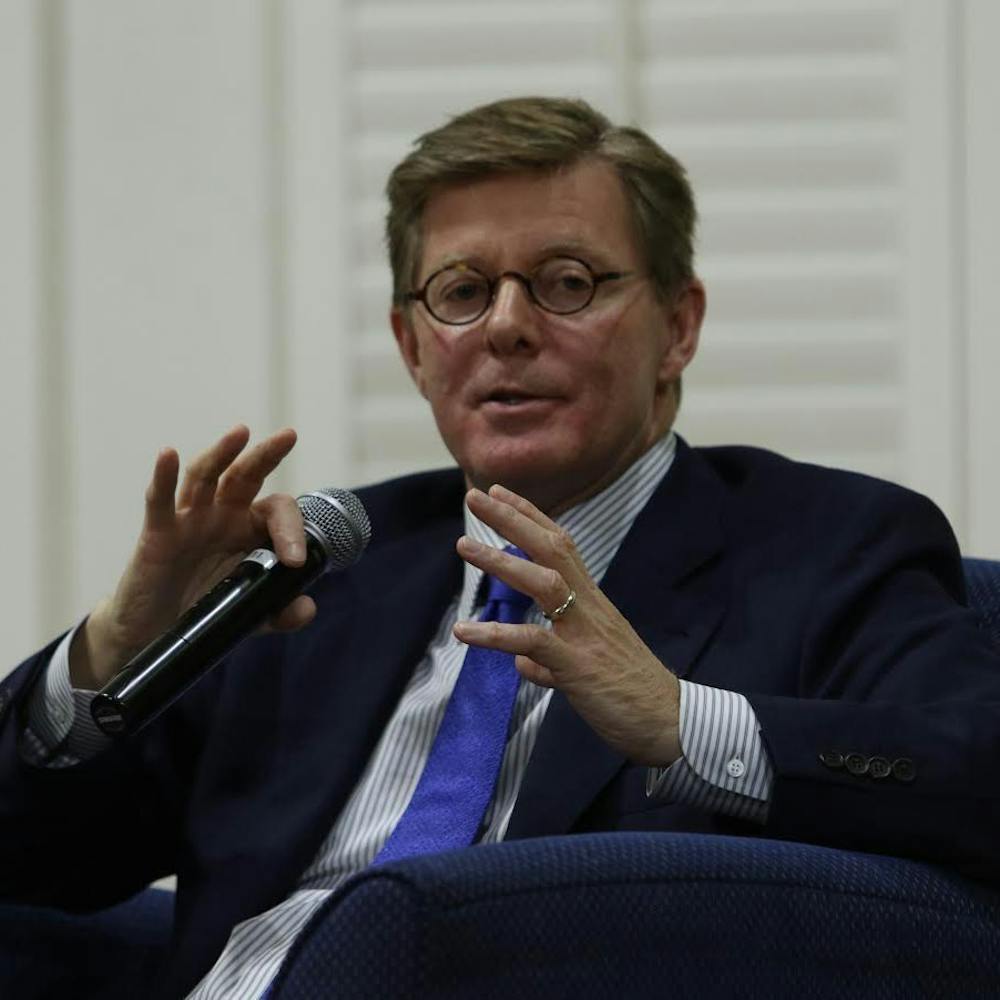Duke participated in its first official athletic competition Thursday since suspending athletic activities this past March, as women's soccer took down Wake Forest in an exhilarating overtime win.
But with returning to the field amid a pandemic comes the need for additional safety measures, as well.
President Vincent Price released a message Friday morning announcing the additional protocols Duke will be taking as its athletic teams return to play, from rigorous COVID-19 testing to unique travel plans.
"After careful review, the ACC adopted [the guidelines of the ACC Medical Advisory Group] and committed to begin the season in all six fall sports (football, men’s and women’s soccer, volleyball, field hockey and cross country)," Price wrote. "After consultation with our own medical faculty experts, Duke has decided to take further steps to protect the health and safety of our student-athletes, the Duke and Durham communities and the continuity of our educational and research missions."
Firstly, all Duke football, men's and women's soccer, field hockey and volleyball athletes—all sports which have been deemed of higher risk by the ACC Medical Advisory Group—will undergo daily COVID-19 testing throughout the season, a bit more rigorous than the three times per week the ACC Medical Advisory Group requires for these sports.
Price wrote that student-athletes from those five sports will also be required to temporarily sequester to certain residential areas following each home and away game until testing and medical monitoring confirms they can return to the community safely.
All teams will be required to travel by charter bus or plane and, if possible, leave and return to campus within the same day. Only student-athletes and essential coaches and staff will be allowed to travel to away games.
Price also reiterated Duke's policy not allowing fans at any home events this fall, with attendance from the visiting team also limited to essential personnel as determined by the ACC.
The list of guidelines concluded by saying that any student-athlete who chooses not to play this year will continue to receive their scholarships, financial aid and other services, will maintain their academic and residential standing and will remain eligible to compete in future seasons, policies enforced by the NCAA as well.
"I want to stress that these are our initial plans. As with every other aspect of this global pandemic, we will remain vigilant and flexible, monitor outcomes and prepare to make changes as we learn from our experiences and others around the country," Price wrote. "Our experience with fall sports will help inform planning for winter and spring sports as well. If conditions warrant further restrictions, a pause or even suspension of activities, then we will not hesitate to take that action."
Get The Chronicle straight to your inbox
Sign up for our weekly newsletter. Cancel at any time.

